- Home
- Linda Castillo
A Gathering of Secrets Page 2
A Gathering of Secrets Read online
Page 2
“Come on!” he screamed. “Are you fucking nuts? Open the door!”
Coughing, he stepped back and lunged forward, his shoulder crashing against the door. Pain zinged across his collarbone, but he didn’t care. The door opened an inch. He shoved it with the heels of his hands. There was something in the way. Something outside the door. Too heavy to move. Through the gap, flames and smoke and heat rushed in, scorching his face and hands, stinging his eyes. He smelled singed hair and the cotton fabric of his shirt. He stumbled back, stunned by the scope of the fire, disbelieving that she would be so irresponsible. That this could be happening at all.
“Hey! Go get help!” Looking around wildly, he grabbed the bottle of wine, the only source of liquid, and thrust the open end toward the blaze. Wine splashed onto the fire and door, but it wasn’t enough to douse the flames. The fire seemed to drink it in and ask for more.
Heat sent him back another step. Smoke poured through the gap, hot black ropes twisting and rising, taunting him, reaching for him. Yellow flames licked at the wood, growing and moving closer. Raising the crook of his arm to his face, he rushed the door, slammed his body against it. Heat seared his shoulder, the side of his face, his ear, but he didn’t feel the pain. The lock had given way; he’d gained another inch. Hope leapt in his chest. But within seconds the opening ushered in a tidal wave of ferocious flames, hungry for fuel, gobbling up the dry wood, eating up the floor.
“Help me!” he screamed. “Fuck! Help!”
Smoke and fire streamed in through the gap. The heat scorched his face, set his lungs ablaze, stole all the air in the room. He could hear himself panting and gasping, every inhale like a hot poker shoved down his throat. Choking, he looked around, seeking something, anything, he could use to pound his way to freedom.
Through the thick smoke, he spotted the homemade saddle rack—dual two-by-fours formed into an inverted V and nailed to the wall. He shoved the saddle to the floor, raised his foot, and slammed his boot down on the boards. Nails screeched as they pulled from the wall, the rack slanting down. He stomped it again and the boards gave way, clattered to the floor. Another dizzying leap of hope as he snatched up one of the two-by-fours. Rushing the door, he swung the section of wood like a bat, slammed it against the door. Once. Twice.
On the third swing, the board tore through the wood. An instant of hope, and then fire burst through the hole, a roaring beast with flames tall enough to lick the ceiling.
Panic tore through him. The blaze was burning out of control. There were thirty bales of hay in the loft, dry as tinder and waiting to explode. If the fire reached that hay, he wouldn’t make it out.
Choking and cursing, he stumbled back. Too much heat now. Too much smoke to breathe. Ripping off his T-shirt, he dropped to his knees and set the fabric over his nose and mouth. Lowering himself to the floor, he rolled onto his back, raised both legs and rammed his booted feet against the door. Once. Twice.
The door gave way. Wood and ash and sparks rained down on him, embers burning his bare chest and arms and face. A rush of superheated air washed over him. Acrid smoke in his mouth. In his eyes. Through the haze he saw glowing cinders on his jeans, the fabric smoldering, the searing pain of a dozen burns. He brushed frantically at the tiny coals, but there were too many. Too much heat. Not enough air to breathe. Dear God …
Fire burst into the room, a rabid, roaring beast that came down on top of him, tore into him with white-hot teeth. Smoke seared his face and neck and chest. The full force of his predicament slammed into him. He screamed, twisted on the floor, rolling and flailing, trying to get away from the pain, but there was no place to go.
His lungs were on fire, burning his lips, his teeth, his tongue. Air too hot to draw a breath. Blinded by smoke and heat. Eyes sizzling in their sockets. The smell of burning flesh in his nostrils. I’m dying, he thought, and he was incredulous that this could happen.
“Datt! Datt!” But the words were little more than muffled cries. He rolled, clawing at the flames crawling over his body, but he hit the wall, no place else to go. No escape.
He tried to scream, but his spit seemed to boil in his mouth, his tongue clogging it like a piece of cooked meat.
With a final hideous roar, the fire swept over him. Red-hot teeth tearing into him, chewing him up, grinding flesh and bone into a molten ooze, and sucking him into its belly.
CHAPTER 2
When you’re the chief of police in a small town, a call at four A.M. is never a good thing. As I roll over and reach for my cell, I’m anticipating news of a fatality accident or, God forbid, bad news about one of my officers or my family.
“Burkholder,” I rasp.
“Sorry to wake you, Chief,” comes the voice of my graveyard-shift dispatcher, Mona Kurtz. “I just took a call for a barn fire out at the Gingerich place. Thought you’d want to know.”
I’m familiar with the Gingerich family. Miriam and Gideon are Amish and live on a small farm a couple miles out of Painters Mill. I don’t know them well. They’re a nice family and lead quiet lives. Last I heard, they still have four kids at home.
Getting my elbows beneath me, I scoot up to a sitting position. “Anyone hurt?”
“Not sure yet. I talked to one of the volunteer firefighters and he told me the family hasn’t been able to account for their son, Danny.”
A sense of dread sweeps over me as I throw off the quilt and set my feet on the floor. “Anyone mention the cause?”
“No one knows anything yet.”
“I’m on my way.”
I hit END as I rise and head to the closet for my uniform.
“What’s up, Chief?”
In the light slanting out from my closet, I see my significant other, John Tomasetti, sit up and squint at the clock. His hair is mussed. Even in the dim light, I can see the overnight stubble on his jaw, concern sharp in his eyes.
“There’s a fire out at the Gingerich farm,” I tell him, shrugging into my shirt. “I got it covered. Go back to sleep.”
“Everyone okay?”
It’s always the first question asked by law enforcement. Property can be replaced. A life cannot. Grabbing my trousers, I walk over to the bed and step into them. “Teenage son is unaccounted for.”
“Well, shit.” He sits up, throws off the covers. “You want some company?”
“Or you could stay here and grab another couple hours of sleep.”
“I don’t have to be at the office until nine.”
Tomasetti is an agent for the Ohio Bureau of Criminal Investigation and works out of the Richfield office, half an hour to the north. Painters Mill falls within his jurisdiction, so it wouldn’t be unusual for him to show up at a barn fire, especially with someone missing. I know one of these days our relationship—our living arrangement—will be discovered. This morning, with a teenage boy’s whereabouts unknown, Tomasetti will be an invaluable resource.
Grabbing my equipment belt and .38 from the drawer, I round the foot of the bed, buckling it as I reach him. “Anyone ever tell you you’re a glutton for punishment?”
“Anyone ever tell you how good you look in that thirty-eight?”
“Just you.”
Rising, he lays a quick kiss on me, his mouth lingering a beat too long, but I like it.
“Do you know the family?” he asks.
“Not well, but I’ve met them. They’re Amish. Well thought of.”
Stepping around me, he goes to the closet, yanks a shirt off a hanger. “Let’s hope Junior shows up before we get there.”
* * *
I turn in to the lane of the Gingerich farm to find one side of their massive bank barn engulfed in flames. The fire is so large, I could see the orange glow above the treetops from half a mile away, and I knew even before seeing it that the structure had sustained major damage.
A tanker from the Holmes County Fire District rattles past as I park out of the way on the grassy shoulder. Tomasetti’s Tahoe pulls up behind me as I’m getting out of my city-issue E
xplorer. A hundred yards away, yellow flames shoot forty feet into the air, licking at the night sky like a thousand fiery tongues.
Embers and ash swirl like snow all around. The stench of smoke, burning wood, and a myriad of other burning materials mingle with the smells of diesel fuel and exhaust. Four fire trucks from two districts are parked haphazardly in the gravel between the house and barn, engines rumbling. Closer to the structure, several firefighters man hoses, water trained on the flames.
I’m midway to the house when Tomasetti catches up with me. As we cross the side yard, I hear a whoosh! and the crack of breaking timber as part of the roof caves in. Sparks fly into the night sky.
“I hope they got the livestock out,” I say as we take the steps to the porch.
The door flies open before I can knock. An Amish woman rushes out, soot and panic on her face. Her kapp is askew; a cardigan she didn’t bother buttoning is thrown over the shoulders of her dress. She looks at me, her entire body shaking. “We can’t find Danny,” she blurts.
“Is everyone else accounted for?” I ask.
“Yes, but Danny should be here, too. In his room. I can’t find him anywhere.” She turns and goes back inside, leaving the door open.
Tomasetti and I follow. The living room smells of candle wax and a hint of smoke that’s wafted inside through the open windows. A lantern flickers from atop a homemade end table. The Amish woman leads us to the kitchen, where a second lantern casts a dome of yellow light on a big table surrounded by six chairs. The glimmer from the fire outside slants in through the window above the sink.
Without speaking, the woman goes to the back door, which is standing open, and steps onto the porch to stare at the burning barn. Beyond, an ocean of emergency vehicles, flashing lights, and firefighters clad in protective gear fill the space between the house and the barn.
“Danny is your son?” I ask.
“Ja.”
“How old is he?”
“Just turned eighteen.” She turns to me, her arms wrapped tightly around her midsection, her face ravaged.
I feel Tomasetti’s eyes on me as I cross to her. “When did you last see him?” I ask.
She blinks as if trying to kick-start a brain that’s overloaded and misfiring. “Last night. He’d gone to bed. Early because he was out late the night before. He has to be at work this morning.”
“You’ve searched the house?”
“That’s the first thing we did. Looked all over for him.” She can’t seem to take her eyes off the barn, giving me only half of her attention. As if the sheer power of her stare will conjure her son.
“Is it possible he got up early and left without telling anyone?” I ask. “Maybe he went in for some overtime? Met a friend for breakfast?”
She shakes her head. “Danny has a car. An old thing he’s been driving since he started Rumspringa. Gideon doesn’t let him park it on the property, so Danny keeps it at the end of the lane. It’s still there.”
Vaguely, I recall seeing an old Chevy sedan parked at the mouth of the lane, beneath a walnut tree when I pulled in. I didn’t think much of it at the time; my attention had been on the fire. The revelation doesn’t bode well for her son.
“Is it possible someone picked him up?” I ask. “A coworker? Or girlfriend?”
“I don’t see why anyone would pick him up in the middle of the night. Not when he has a car and doesn’t have to be at work until eight. Danny likes his sleep, especially with all the running around.”
Expression anguished, she turns to look out the door. “Maybe they’ve found him by now. Maybe he’s out there, helping the firemen put out that fire.”
Tomasetti touches her arm. “I’ll go check.”
Hope leaps into the woman’s eyes. A wild thing, barely contained. “My husband, Gideon, is out there, too. He’s half crazy with worry, but the firemen won’t let him get close to the barn.”
“Hang tight.” Giving us a final nod, Tomasetti goes through the door.
My radio screeches with dozens of calls, so I lower the volume. “Mrs. Gingerich, while we’re waiting, why don’t you and I check the house one more time? Just to make sure someone didn’t miss something.”
“Mamm?”
We turn to see a teenage girl come through the kitchen door. Her face is red and tear-streaked. She’s wearing a sleep gown and socks, the soles soaked through with mud, a barn coat thrown on over the gown.
“Did you find Danny?” she asks.
“Not yet.” The woman wrings her hands, paces from the door to the girl and then back to the door. “I’m sure he’s around somewhere.”
I make eye contact with the girl. “Danny’s your brother?” I ask.
“Ja.”
“When did you last see him?”
“Right before he went to bed. We had ice cream on the porch and then he went to his room.”
“What time was that?”
“Ten o’clock or so.”
“You checked his bedroom? Bathroom?”
The Amish woman turns to me. “Of course we did. I told you. We checked. He’s not here.”
I keep my attention on the girl. “Let’s you and I check the house one more time, okay? Bathrooms. Closets. Just to make sure. Can you give me a hand with that?”
It doesn’t take us long to ascertain that young Danny isn’t in the house. Two little girls share a small bedroom and are sleeping peacefully in their beds.
I stop the girl in the upstairs hallway. “What’s your name?” I ask.
“Fannie.”
“I’m Kate.” I offer my hand and she gives it a weak shake. “Does Danny have a cell phone?” I ask.
“Having a phone is against the Ordnung,” the girl says, referring to the unwritten rules of their church district.
I press her anyway. “He was on Rumspringa, right? Maybe he’d gotten a phone and didn’t want your parents to know?”
Fannie shakes her head. “He wouldn’t.”
I nod, but I know better. More than likely, an eighteen-year-old Amish boy on Rumspringa does, indeed, have a phone.
“Rumspringa” is the Deitsh word for “running around.” It’s the time in a young Amish person’s life when they have the opportunity to experience the world without all those Amish rules, usually right before they become baptized and join the church. It gives me hope that Danny simply slipped out in the middle of the night and didn’t tell anyone.
I go to Danny’s room next, open the door, and step inside. Fannie follows. Like most Amish bedrooms, this one doesn’t have a closet. Clothes are hung on wooden dowels. Shoes are lined up against the wall. I notice immediately one of the dowels is bare. A single pair of work boots is tucked beneath the bed.
I motion toward the boots. “Does he have more than one pair of shoes?”
She tilts her head to look at the boots, and her face screws up. “His cowboy boots are gone.” She begins to cry.
“Cowboy boots?”
She pulls a shredded tissue from her pocket and dabs at her eyes. “He bought them with his first paycheck from his job in town. He’s crazy about them.” She chokes out a sound that’s part sob, part laugh. “Says they drive the girls wild. They’re the ugliest things I ever saw, but he wears them everywhere.”
I reach out and gently touch her arm. “Fannie, maybe he sneaked out to meet some friends or a girlfriend. Don’t give up hope just yet. We’ve barely begun to search.”
The girl’s expression brightens, but she doesn’t look hopeful. “Luane’s mamm and datt would never let her leave the house after dark, especially with a boy. Even a good boy like Danny.”
“Luane is his girlfriend?”
“Ja.” She starts to cry again, but regains control quickly. “Her parents are Swartzentruber. Strict, you know. They love Danny like a son, but they still wouldn’t allow such a thing.”
“Where there’s a will, there’s a way.” I mutter the words beneath my breath and motion toward the stairs. “Let’s go talk to your mamm.”
>
A few minutes later, Miriam, Fannie, and I sit at the kitchen table, trying hard to ignore the cacophony of voices, engines, and sirens outside. Miriam made coffee and set a cup in front of me. No one drinks.
“Fannie tells me Daniel has a girlfriend,” I begin.
The Amish woman nods. “Luane Raber. She’s a sweet girl. Only sixteen years old. They’re a good match. I suspect they’ll get married.…”
“Do the Rabers have a phone?” I ask. “Maybe he went to see his girl.”
“They’re Swartzentruber and have no need for a phone.”
I hit the lapel mike at my shoulder and hail my third-shift officer. “T.J.? What’s your twenty?”
T.J. Banks is the youngest officer in my small department and the only rookie. Since he’s got the least amount of seniority, he usually ends up on the graveyard shift.
“I’m setting up traffic cones in front of the Gingerich place, Chief.”
“I want you to run over to Mose and Sue Raber’s place out on Dogleg Road. Tell them there’s been a fire here at the Gingerich farm and we’re trying to locate Daniel. See if he’s there. Check any barns or outbuildings. And find out if their daughter, Luane, is there. Make sure you speak to her personally, just in case he decided to sneak over without her parents knowing.”
“Got it.”
I turn my attention back to Miriam. “I understand Daniel is on Rumspringa.”
“It’s true. He’s at that age.”
“Mrs. Gingerich, can you think of anywhere else he might’ve gone? Some place we might find him?” I look from Miriam to her daughter. “Any friends he might be visiting?”
Fannie shakes her head. “He would have taken the car.”
“Unless someone picked him up,” I put in.
Closing her eyes, the woman shakes her head. “None of his friends have a car, Chief Burkholder. Danny works hard. Saves his money. He bought the thing a few months ago and drives it every chance he gets.”

 A Hero to Hold
A Hero to Hold A Whisper in the Dark
A Whisper in the Dark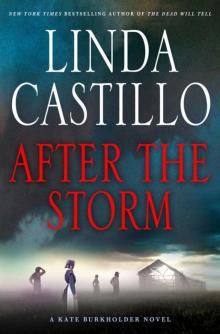 After the Storm
After the Storm A Baby Before Dawn
A Baby Before Dawn Breaking Silence
Breaking Silence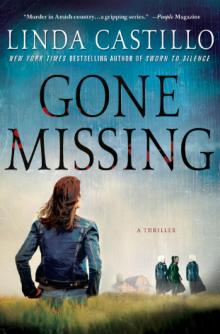 Gone Missing
Gone Missing Long Lost
Long Lost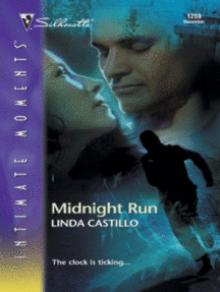 Midnight Run
Midnight Run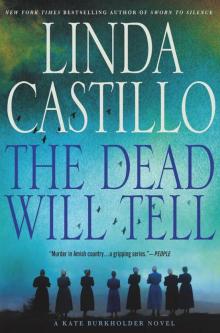 The Dead Will Tell
The Dead Will Tell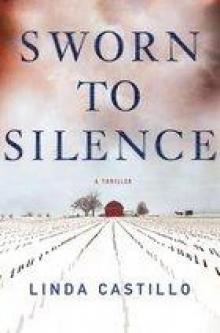 Sworn to Silence
Sworn to Silence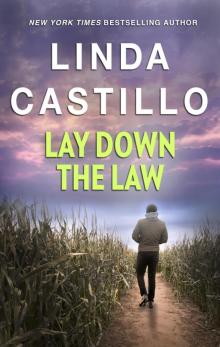 Lay Down the Law
Lay Down the Law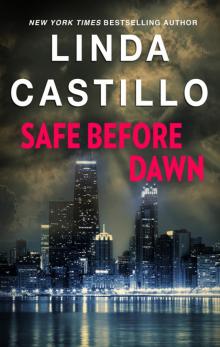 Safe Before Dawn
Safe Before Dawn Depth Perception
Depth Perception Seeds of Deception
Seeds of Deception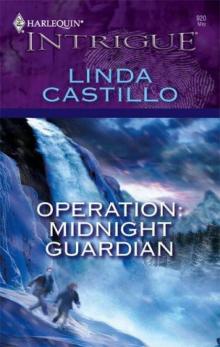 Operation: Midnight Guardian
Operation: Midnight Guardian The Perfect Victim
The Perfect Victim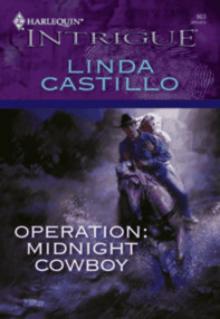 Operation: Midnight Tango
Operation: Midnight Tango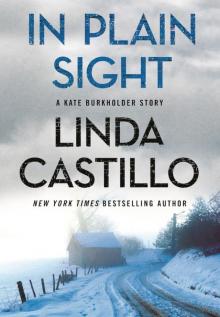 In Plain Sight (Kate Burkholder)
In Plain Sight (Kate Burkholder) Shamed
Shamed Fallen
Fallen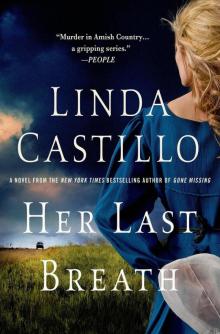 Her Last Breath
Her Last Breath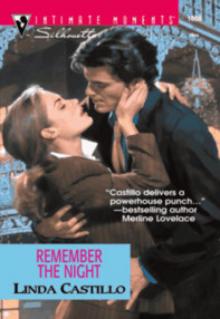 Remember the Night (Men in Blue)
Remember the Night (Men in Blue) Dead Reckoning
Dead Reckoning Cops and ... Lovers?
Cops and ... Lovers? The Pact
The Pact A Simple Murder
A Simple Murder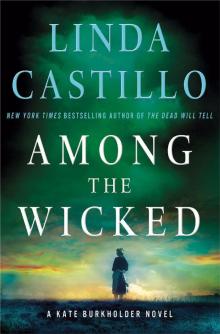 Among the Wicked
Among the Wicked In the Dead of Night
In the Dead of Night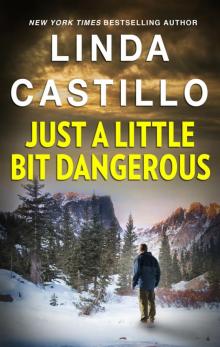 Just a Little Bit Dangerous
Just a Little Bit Dangerous The Phoenix Encounter
The Phoenix Encounter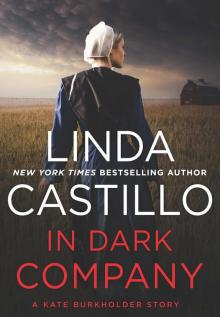 In Dark Company
In Dark Company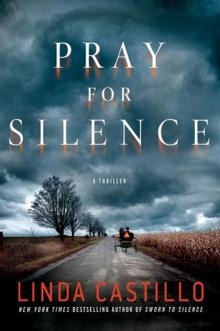 Pray for Silence
Pray for Silence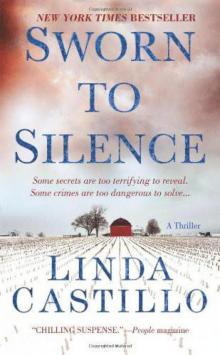 Kate Burkholder 01-Sworn to Silence
Kate Burkholder 01-Sworn to Silence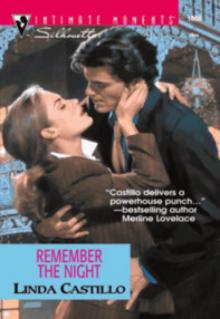 Remember the Night
Remember the Night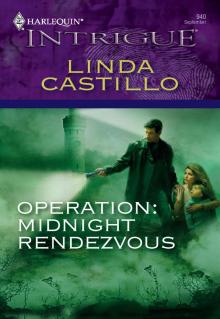 Operation: Midnight Rendezvous
Operation: Midnight Rendezvous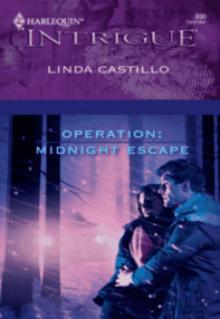 Operation: Midnight Escape
Operation: Midnight Escape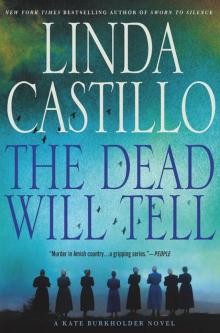 The Dead Will Tell: A Kate Burkholder Novel
The Dead Will Tell: A Kate Burkholder Novel Seeds of Deception: A Kate Burkholder Short Story
Seeds of Deception: A Kate Burkholder Short Story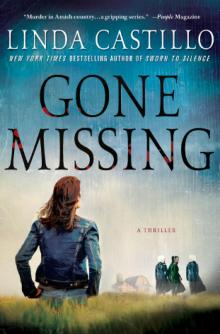 Gone Missing (Kate Burkholder 4) kb-4
Gone Missing (Kate Burkholder 4) kb-4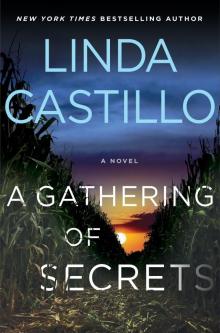 A Gathering of Secrets
A Gathering of Secrets Seeds of Deception: A Kate Burkholder Short Story (Kindle Single)
Seeds of Deception: A Kate Burkholder Short Story (Kindle Single)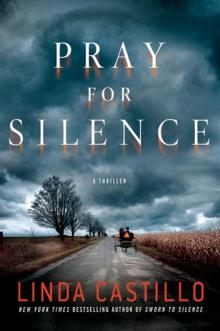 Pray for Silence kb-2
Pray for Silence kb-2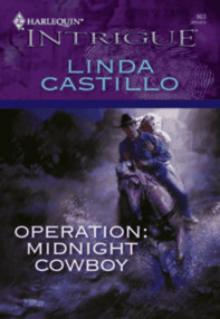 Operation: Midnight Cowboy
Operation: Midnight Cowboy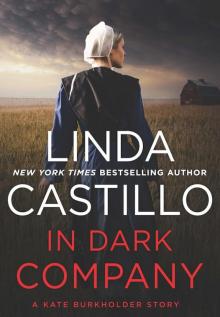 In Dark Company_A Kate Burkholder Short Mystery
In Dark Company_A Kate Burkholder Short Mystery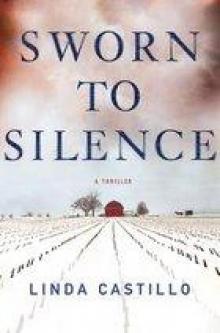 Sworn to Silence kb-1
Sworn to Silence kb-1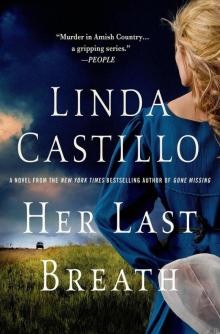 Her Last Breath: A Kate Burkholder Novel
Her Last Breath: A Kate Burkholder Novel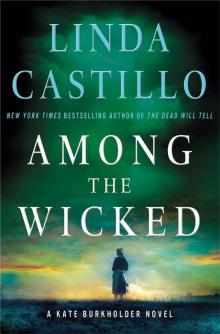 Among the Wicked: A Kate Burkholder Novel
Among the Wicked: A Kate Burkholder Novel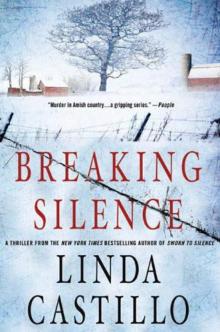 Breaking Silence kb-3
Breaking Silence kb-3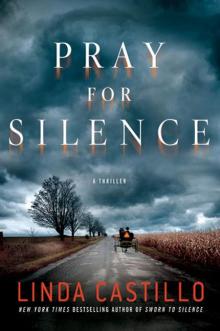 Kate Burkholder 2 - Pray for Silence
Kate Burkholder 2 - Pray for Silence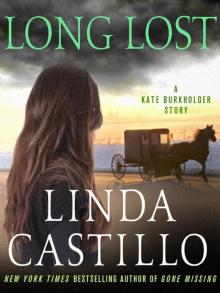 Long Lost: A Kate Burkholder Short Story
Long Lost: A Kate Burkholder Short Story